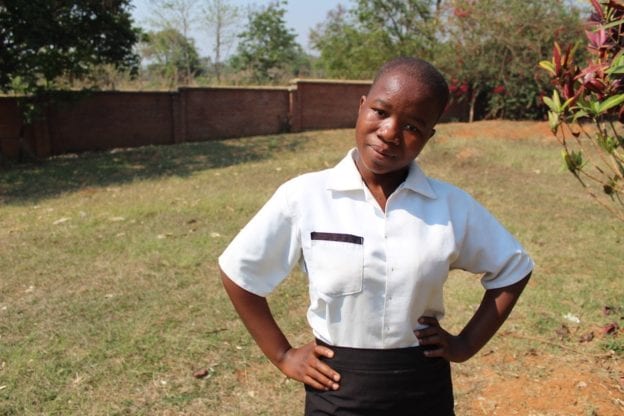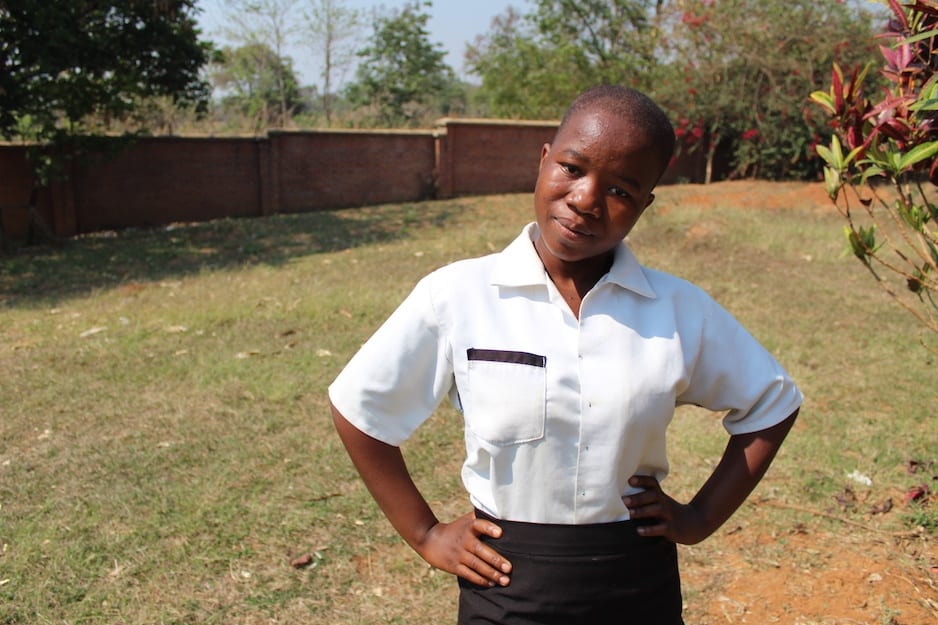Blessings Henry, Neno’s Feminist Future Doctor


For Blessings Henry, a typical school day begins at 3 a.m.
The 17-year-old is in her last year of secondary school in Malawi’s Neno District, a rural region of rugged mountains and arid flatlands in the country’s south, near the border with Mozambique. Blessings uses her early mornings, as well as her evenings, to study before and after classes. These long days devoted to education are in pursuit of Blessings’ ultimate goal: going to medical school and returning home to Neno to work as a doctor.
Blessings wants to become a physician not only to care for patients — she also wants to inspire young women in her community.
“Very few people here have reached being a medical doctor,” she says, citing a fact that’s especially true of women. “I would like to work in Neno so that more girls from Neno have a role model to encourage them to go to school.”
Only 8 percent of men in Neno have completed secondary school, and the rate is even lower for women—just under 5 percent. In one of the poorest districts in one of the world’s poorest countries, most families aren’t able to pay the costs of their children’s education, from books and pencils to required school uniforms and examination fees. Most students—especially girls, due to poverty or early marriage—drop out.
Indeed, poverty nearly prevented Blessings from remaining in school. When her father unexpectedly died, Blessings’ mother and grandmother were left to care for her and her four younger siblings without any consistent income for food or other basic necessities, let alone the fees associated with secondary education. Determined to enable Blessings to stay in school, her mother contacted Abwenzi Pa Za Umoyo, as Partners In Health is known locally, for support.
PIH has been subsidizing Blessings’ education ever since, from seventh grade onwards. She’s one of nearly 150 secondary school students in Neno whose educations PIH helped fund in 2018 alone. Without this support, Blessings says, “I would not have been able to continue school. My family is so vulnerable, there is no way they would have been able to pay school fees or get scholastic materials.”
Blessings’ path to medical school is paved not only by her own hard work and PIH’s support, but also by her mother and grandmother’s commitment to her education. Though she is far from her family during school—she is a boarding student, and must walk at least three hours to get home for visits or breaks—she feels their encouragement echoed in a community of female students and teachers who help and inspire each other.
All of these women have shaped Blessings’ future plans, along with her steadfast belief in herself and other girls.
“It’s important that everyone, either male or female, be given an equal opportunity to attain education,” she says. “No matter how poor and vulnerable they are, all young women around the world should set their goals, be focused, and continue working hard.”
Article originally posted on pih.org.
Read more about how PIH is enabling the education of the next generation of health care professionals, from supporting an emergency medicine residency program in Haiti to the construction of the University of Global Health Equity campus in Butaro, Rwanda.



